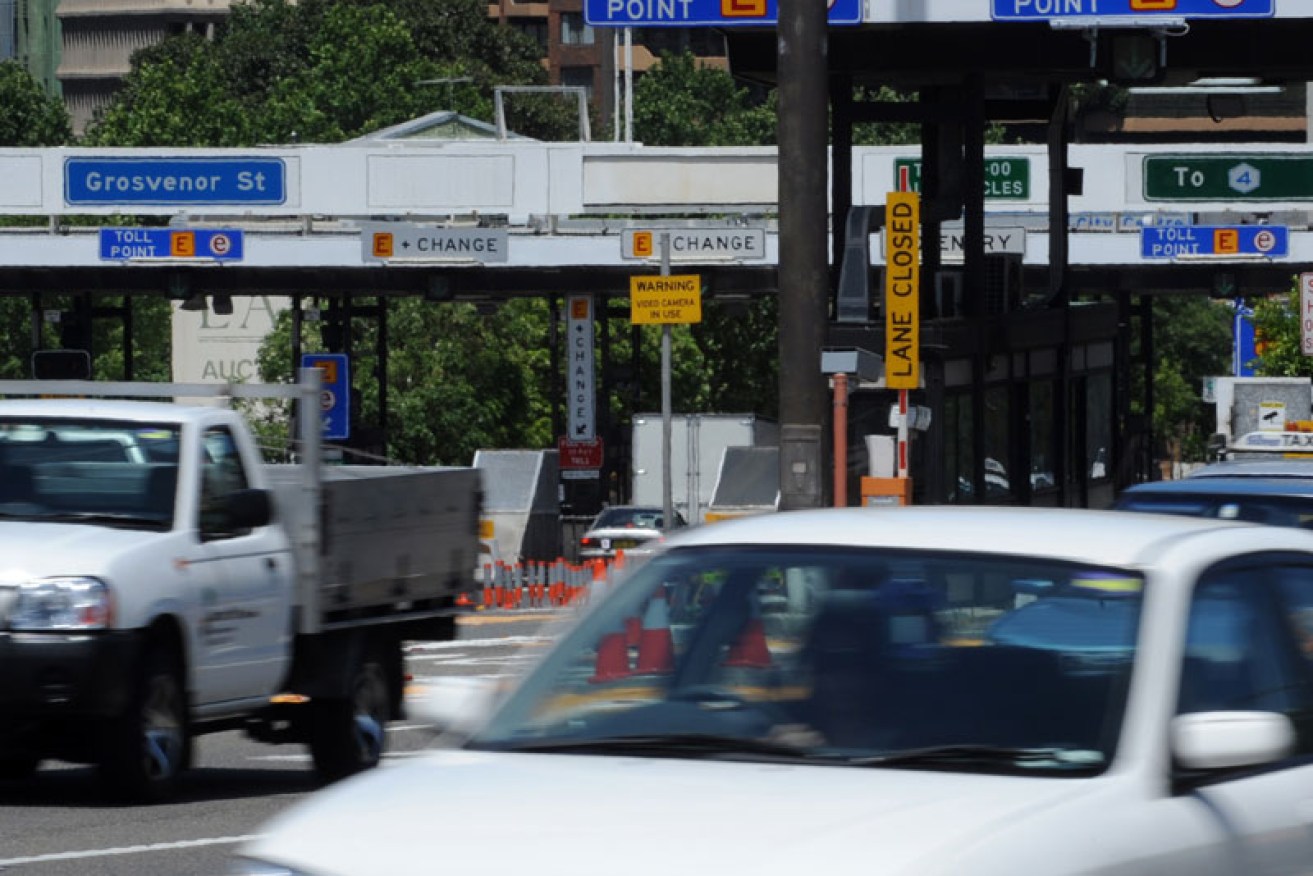Tolls are driving Transurban profits sky high


Opposition leader Chris Minns intends to press infrastructure operators for a better deal. Photo: AAP
The stock market might be punishing banks and miners but the shares of toll road operator Transurban are at record levels as motorists fork out huge amounts on tolls.
The toll giant, which owns major roads like CityLink in Melbourne, the M2 and M7 motorways in Sydney, and Clem Jones and the Gateway motorways in Brisbane, just announced its half-year results which saw revenues jump a whopping 19.3 per cent to $990 million, while earnings were up 14.6 per cent to $729 million.
• ‘Plead guilty’: ASIC tells manipulative banks
• Twitter profit falls as tweeters desert the platform
• Home sales surged in December
Shareholders will cash in with a 12.5 per cent jump in the dividend to 45.5c per unit for the full year.
Transurban is a massive machine that feeds in concrete, tar and motor vehicles at one end and spits out money at the other. The more Australians drive, the more profitable it becomes.
The last half-year represents a case in point. Toll revenues rose by 19.3 per cent which was way higher than traffic growth – as the chart below shows.
 In Sydney, traffic grew nine per cent and toll revenues were up 14.9 per cent. In Melbourne, traffic was up only 1.9 per cent but tolls grew at 7.4 per cent, while in Brisbane traffic grew at 9.6 per cent while toll revenue grew at 11.4 per cent.
In Sydney, traffic grew nine per cent and toll revenues were up 14.9 per cent. In Melbourne, traffic was up only 1.9 per cent but tolls grew at 7.4 per cent, while in Brisbane traffic grew at 9.6 per cent while toll revenue grew at 11.4 per cent.
Its US operation had very big numbers but these are distorted by road expansions coming on stream.
The toll revenue grows quicker than traffic because of the formula the company uses to boost its tolls. Transurban has concessions from state governments to levy tolls on its motorways for set periods of time and these have escalation formulae in the contracts.
How much is enough

Sydney commuters are used to paying tolls over the Sydney Harbour Bridge. Photo: AAP
Transurban puts billions at risk with its investments which keep city roads moving, boosting economic growth and needs to earn a return.
But independent transport economist Dr Chris Hale says the tolling arrangements are too generous and there are cheaper ways to provide the infrastructure without over-rewarding .
“If it (CityLink) was a public project the tolls would have paid for it many times over. It would be paid off or the tolls used to build other infrastructure,” he said.
Dr Hale compared Transurban to Queensland’s passenger rail network which earns a return of about eight per cent on its capital. Transurban earns far more than that, with its earnings currently growing at 14.6 per cent.
“At the end of the day it’s not an efficient arrangement for the community,” Dr Hale said. “Transurban needs to earn a decent return, not an outrageous return.”
The magic profit formula
On Melbourne’s CityLink, for example, tolls can go up by the greater of the Consumer Price Index (CPI) or around 4.5 per cent a year. With inflation very low at 1.7 per cent, CityLink tolls are growing at almost three per cent in real terms.
In Sydney, similar formulae apply while in Brisbane, where Transurban bought a number of failed projects, the escalation rate is mainly the CPI.
There are other ways Transurban can push up its tolls. Last year it spent $1.1 billion widening the M2 and M5 in Sydney and in return for the capital expenditure the NSW government allowed it to kick up tolls by eight per cent.

There’s money in roadways. Photo: AAP
In Melbourne, a project that is widening the Tullamarine Freeway will allow it to boost the tolls on trucks from 1.9 times the car toll to three times. Other capital works have been compensated by allowing the company to extend the length of its concession (the period over which it can levy tolls).
Its recent unsolicited $5.5 billion offer to the Victorian government to build the Western Distributor, a tunnel under the Maribyrnong River which will connect to CityLink, would be financed in part by extending the Melbourne concession by 12 years to 2047. Transurban and the state government are currently negotiating the proposal.
Add all that together and you get a significant and expanding revenue base that has seen the company expand its initial $1.8 billion investment in Melbourne 16 years ago to over $21 billion today.









